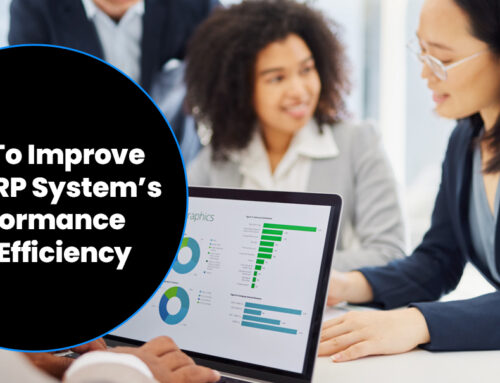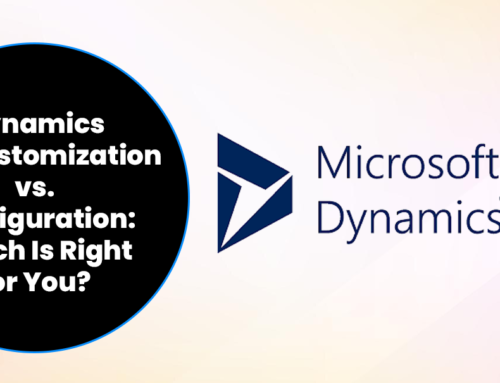
A single enterprise resource planning (ERP) software typically takes the place of half a dozen — or more — stand-alone platforms, which are combined into a single, centralized interface. Often, these are mission-critical software systems that are developed in a way that makes them perfectly suited to a specific niche or industry. It is these high-stakes factors that make the ERP software selection process very challenging. 0…
What’s more, these enterprise systems tend to carry a significant price tag with a multi-month implementation timeframe during which the software is configured to suit an organization’s unique needs such as one-of-a-kind processes and customized workflows.
With all of these points considered, it is no surprise that many find the ERP software selection process to be intimidating. But knowing what to expect and having a defined process and criteria in place will go a long way toward ensuring that you find the perfect enterprise software platform — one that will bring a healthy ROI, while simultaneously increasing productivity.
Identifying Your Current Platforms as Part of the ERP Software Selection and Criteria Process
The first step for selecting an enterprise software platform involves identifying all of the systems that are currently in use. This process can be very involved because you will need to meet with users in each department or division to identify what features and functionalities they are currently using. It is also wise to identify features that they do not currently use but would find useful in a software system.
Integrations must also be considered in addition to the platform features and functionalities. Enterprise software solutions frequently include integrations or “connections” with third-party platforms and databases. These integrations can be challenging and will need to be achieved in the new ERP system too.
When all is said and done, you will end up with a very detailed list of the various features, functionalities, and integrations that are required by each division or department in your organization. This list will serve as your criteria, largely guiding your search for a new enterprise software platform.
Determining Your Budget and Platform Type During the ERP Software Selection and Criteria Process
Budget will have a major impact on your ERP selection process, making this a point that is ideally considered before you begin your search.
The type of ERP platform will largely determine overall cost, so this too must be explored early on. A traditional on-premise ERP platform requires a data center with tech staff to oversee the hardware and software systems. The actual ERP software is usually licensed to the company with a sizable one-time fee. Updates may or may not be included as part of that one-time payment. A portion of developers charge a separate fee for periodic updates and support.
The other option to consider is a cloud-based ERP system, which is billed out on a subscription-type basis. This software-as-a-service (SaaS) configuration tends to be far more budget-friendly, with many benefits over traditional on-premise ERP solutions. Cloud ERP generally features better, faster performance, and greater scalability, making this platform type the more popular of the two.
What’s more, many major developers such as SAP and Oracle are only guaranteeing support for non-cloud ERP software for the next few years, leaving many to surmise that they may eventually do away with support for these platforms in the relatively near future. This is something that should definitely be kept in mind when selecting an ERP system.
Whatever the case, you will need to choose the type of ERP platform that is best for the company, its needs, and its budget. This will guide your search to a large degree, effectively filtering out a large percentage of options right out of the starting gate.
Creating an ERP Selection Task Force to Select the Perfect Platform
An ERP implementation can impact nearly every individual within a company and you want to be sure that this impact is a positive, productive one. An ERP selection team serves as the perfect mechanism for guiding the search and evaluating an enterprise software system’s suitability. This team or task force should include representatives from all of the user groups, departments, and divisions that will be using the platform.
The ERP selection team will perform lots of different functions, including the following.
- Providing input on the features and functionalities that must be present in an ERP interface.
- Offering insight into how well a specific system would meet their needs.
- Giving feedback on the modifications, customizations, and integrations that will need to be addressed during the implementation and configuration process.
- Identifying flaws and issues that suggest a specific system would be a bad fit for the organization.
This team will invariably prove to be a valuable asset during the ERP selection process, even helping to create a shortlist of enterprise software platforms. Once you choose the right solution, the team’s mission will shift to implementation and rollout.
Evaluating Your Data Management Strategy as Part of the ERP Selection Process
Data management must be a key component of your ERP selection process. Some enterprise software systems are more friendly to data migration, while others pose a much greater challenge.
Data migration is a large part of the ERP implementation process since you are shifting data from multiple platforms into a single, centralized database. This centralized database represents one of the most significant benefits associated with moving to an ERP system. But if done improperly, your data could be jumbled into a tremendous mess that becomes a costly liability.
Data is often among a company’s most valuable assets. You want to select an ERP system that allows for a seamless data migration process, particularly if you lack the on-staff data management experts to work with your chosen ERP implementation partner during the migration phase.
Picking an ERP software system is a complex undertaking that is made more stressful by the high-stakes that are involved. Select the wrong platform and you risk a profoundly negative impact on your users, your data, and your organization’s business processes and workflows. At Cox-Little, we understand the complexities and challenges of the ERP software selection process. Our ERP experts understand the importance of developing strong selection criteria and we are ready to lead your project to the finish line with minimal stress and maximum ROI. We invite you to reach out to the Cox-Little team today to begin discussing your needs for an ERP platform.





